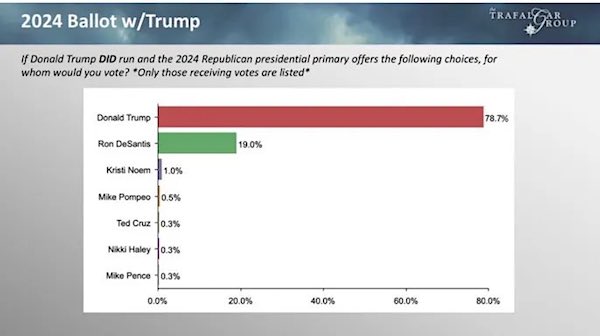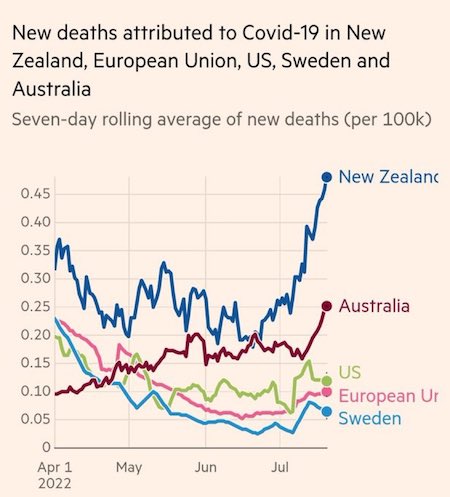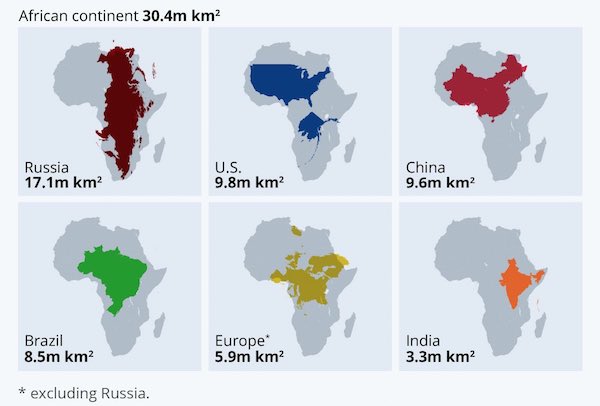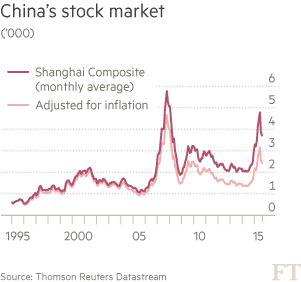
Mathew Brady Abe Lincoln 1864



Tulsi
https://twitter.com/i/status/1551154675394744320





Carl Sagan
How the ancient Greeks knew the Earth was round. All you need is sticks, eyes, feet and brains. pic.twitter.com/J7RRT5Sit0
— Lost in history (@lostinhist0ry) July 23, 2022




“The truth is that by the laws of warfare the Ukraine lost the war in less than a week.”
• Five Months Into The Special Military Operation (Saker)
[..] if you look at the size of the Russian force which took the Antonov airport near Kiev (one airborne regiment) and the size of the force which moved by land towards that airport, you can easily convince yourself that this force was not intended to attack or invade Kiev. This force did exactly what it was intended to do, it forces the Ukronazis to move forces to protect Kiev and, thereby, it pinned them down just long enough to establish air superiority, attack and cut off the forces near and in the Donbass, destroy the Ukrainian C4I and almost the entire Ukrainian air force. This took just a few days and once that mission was completed, these forces withdrew as they had literally nothing to gain by staying in place. If anything it is the Ukrainian side which is running out of weapons, supplies and soldiers (more about that later). The Russians have all the firepower they need for many years ahead.
“Russia had to change her plans and tactics because of the heavy losses suffered by the Russian military early in the operation” Actually, there is a grain of truth here, but not the correct explanation. As I have mentioned several times, the special military operation is “special” because it is an operation which is not a regular combined arms operation. The Russians began the SMO with fewer soldiers than the opposing side, and they privileged maneuver and long range strikes over the taking and holding of towns and cities. Most crucially, the Russians very deliberately tried all they could to minimize Ukrainian casualties and to preserve the Ukrainian civilian infrastructure (unlike the “democratic” countries out there who first destroy power plants, bridges, water stations, etc. to inflict the maximum of “shock and awe” on the civilian population!). The Russians could have easily turned, say, Kiev into Baghdad or Belgrade under US/NATO bombs, but they deliberately chose to save as many lives and civilian infrastructure as possible, even at the cost of lives of Russian soldiers).
What apparently did take the Russians by surprise is the willingness of the Ukrainian forces in some towns to attack the Russian columns even though the local authorities seemed to have indicated to the Russians that, like in, say, Kherson, their city would not resist. Simply put, they chose the Mariupol model rather than the Kherson model. This choice was mainly dictated by the very powerful Nazi death squads who would at best arrest anybody negotiating with Russia and, at worst, simply shoot them on the spot. The Russians found plenty of bodies of executed Ukrainian soldiers. But this does not tell the full story either. The truth is that by the laws of warfare the Ukraine lost the war in less than a week.
What is my evidence for such an apparently outlandish and over-the-top statement? Simple: since the beginning of the SMO, the Ukrainians failed to execute a single operational level attack or counter-attack. At most they were able to execute small, tactical level attacks, the vast majority of which almost instantly failed, a few were defeated in a few days, and, crucially, not a single one gave the Ukrainian side the operational initiative. Not once.

Are these sanctions gone or not?
“Russia and the United Nations signed a memorandum providing for the UN’s involvement in lifting international sanctions on the export of Russian grain and fertilizers..”
• Moscow Reveals Target Of Strike On Odessa Port (RT)
The Russian Ministry of Defense has confirmed striking targets in the major Ukrainian port of Odessa on Saturday, revealing that its missiles hit military infrastructure and arms stockpiles. “In the seaport of Odessa, on the territory of a shipyard, a docked Ukrainian warship and a warehouse of Harpoon anti-ship missiles, supplied by the US to the Kiev regime, have been destroyed by sea-based high-precision long-range missiles,” the ministry said on Sunday. The attack also crippled a repair facility where vessels of the Ukrainian navy have been fixed, it added. The strike on the target in Odessa, which is a major trade hub in the southwest of Ukraine, came a day after the signing of a UN-brokered deal to unblock grain exports from Ukrainian ports.
During the conflict that has been underway since February 24, Moscow has insisted that its troops only fire at Ukrainian forces and military infrastructure, not civilian facilities. According to Kiev officials, four cruise missiles were used in the attack on the port of Odessa, allegedly targeting grain silos located there. Two of the missiles were intercepted and two made it through, but failed to inflict significant damage, they said. Ukrainian leader Vladimir Zelensky described the strike as “barbarism” and insisted “Russian Kalibr missiles destroyed the very possibility of statements” on the need for dialogue and any agreements with Moscow. UN Secretary-General Antonio Guterres “unequivocally condemns” the attack on the port of Odessa, his spokesman said.
According to Guterres, “the full implementation [of the deal] by Russia, Ukraine and Turkey is imperative” because the products that are covered by it are “desperately needed to address the global food crisis and ease the suffering of millions of people in need around the globe,” he added. The Russia-Ukraine agreement, which had been agreed on Friday with the mediation of Turkey and the UN, sets out a framework for resuming Ukrainian grain exports via the Black Sea ports, which had been disrupted by the fighting. In addition, Russia and the United Nations signed a memorandum providing for the UN’s involvement in lifting international sanctions on the export of Russian grain and fertilizers to world markets.

“As far as food is concerned, our Western colleagues… should remove the obstacles they themselves have created..”
• Russia Not Asking For Sanctions Removal – Lavrov (RT)
Moscow is not asking for the lifting of sanctions, but urges Western states to fix the problems they have created on the global food market, Russian Foreign Minister Sergey Lavrov said on Sunday. “We are not asking for the removal of sanctions – those are problems that deserve to be dealt with separately. We will simply develop our economy now by counting on reliable partners and not on those who have once again proved their total incapacity… As far as food is concerned, our Western colleagues… should remove the obstacles they themselves have created,” the diplomat said after talks with his Egyptian counterpart, Sameh Shoukry, in Egypt.
He noted that Moscow would not have agreed to Friday’s deal unblocking Ukraine’s grain exports if the issue of freeing up Russian exports had not been resolved. Moscow is now counting on the UN to stick to its promise and assist in removing restrictions holding back Russian grain shipments. “Those illegitimate restrictions that were imposed… prevented operations with Russian grain, including insurance, including the admission of our ships to foreign ports and foreign ships’ entry into Russian ports,” Sergey Lavrov said. “After the signing of agreements in Istanbul at the initiative of the UN Secretary General, he volunteered to seek the removal of these illegitimate restrictions. Let’s count on him to succeed,” the foreign minister added. Lavrov recently accused the West of intentionally “keeping silent” about the impact of Ukraine-related sanctions on Russia’s exports.
At a news conference last month, he said: “There is a problem with the export of Russian grain. Although the West loudly reminds everyone that grain is not subject to sanctions, for some reason they are bashfully silent about the fact that ships carrying Russian grain are subject to sanctions. They are not accepted in European ports, they are not insured, and, overall, all logistics and financial matters, which are associated with the supply of grain to the world markets, are under sanctions of our Western colleagues.” Representatives of Ukraine, Russia, the UN and Turkey signed a deal to unblock exports of grain, food, and fertilizers from Ukrainian ports on Friday. In addition to the agreement, Russia and the UN signed a memorandum implying UN involvement in lifting restrictions on the export of Russian grain and fertilizers to world markets.

“..where does the US/NATO defeat in the Ukraine leave the European peninsula?..”
• On the Future of Europe: A Proposition from 1 January 2023 (Batiushka)
As schoolchildren will tell you, the names of the continents begin and end with the same letter, A: Asia, Africa, America, Australia, Antarctica. There is one exception: Europe, which though still beginning and ending with the same letter, the letter is not A, but E. Why the difference? Is it perhaps because Europe is not really a Continent? After all, it is not a vast landmass surrounded by an ocean (if it were a small one, it would be called an island). Its borders are arbitrary, having frequently changed, were only relatively recently pushed to the Urals, and are still much disputed. In reality, surely Europe is the artificially isolated north-western peninsula of Asia? It is not a geographical Continent at all, it is an ideological construct. That is why the slogan of so many EU-fanatics, like the former French President Chirac, was: ‘Faisons l’Europe’ – ‘Let’s Create Europe’.
We ask the above question because in this winter of 2022-2023 the old EU and Non-EU Europe has had to face a new reality following the war that the US/NATO lost in the ‘Ukraine’, as it used to be called. Europe-wide, indeed worldwide, food riots with looting of supermarkets and ‘bill boycotts’ (the wave of civil disobedience with the refusal/inability to pay soaring fuel bills) made this clear. Obviously, a worldwide reconfiguration is coming. Already the new world is becoming multipolar, with several main centres within the old BRICS, Russia, China, India, Brazil, South Africa, and now more to come, perhaps Iran, Türkiye, Argentina, Egypt, Saudi Arabia, Afghanistan, Mexico, Lebanon and Indonesia. In general, all Asia, Africa and Latin America now at last have their own future.
Not only are the old, thoroughly corrupted international organisations like the UN, WTO, WEF or IMF rightly disappearing into the sewers of history along with their discredited puppet-master, the US elite, but so too are pro-US regional groupings, like its European political and economic arm the EU and its European military arm, NATO. And here precisely, we ask where does the US/NATO defeat in the Ukraine leave the European peninsula, both the EU part of it and the rest of it, outside the EU? After World War I Europe had to be reconfigured, and again after World War II. Now, after whatever you call the 2022 Western rout in the Ukraine (World War III, or World War I, Part III), what is its destiny?
Surely the greatest revelation of the US proxy war in the Ukraine is Europe’s dependence on Russia. Without Russia, it simply cannot survive – though Russia can survive without it. The fact is that for the last few centuries, the largest European country has been Russia for surface area and, over the last century and a half, for population. The most common European language in Europe is Russian, the second German, the third French, the fourth English, the fifth Italian. As regards natural resources, whether agricultural or mineral, and as regards military power, the most important country, once again, is Russia.

The topic is so taboo that only the black sheep can mention it.
• Hungary Warns Of Shift In World Order (RT)
The Russia-Ukraine conflict could end the West’s dominance and shift the balance of power in the world, Hungarian Prime Minister Viktor Orban has said. Russia launched a military campaign against the neighboring country in late February. Orban argued that the decision to impose sanctions on Moscow and supply Kiev with heavy weapons de facto turned the EU and NATO member states into participants in the conflict, but ultimately yielded no results. “Instead, today we are sitting inside a car with flat tires on all four wheels,” Orban said in a speech in the Romanian city of Baile Tusnad on Saturday. “The world is not only not with us, but it is demonstratively not with us,” the PM added, arguing that, instead of thinking about gaining the upper hand on the battlefield in Ukraine, the West should now focus on achieving peace through negotiations.
Orban also warned that the conflict could easily put an end to Western supremacy and “create a multipolar world order.” “We must try to persuade the West to develop a new strategy,” the PM said. He later added that the conflict “will end when the Americans and the Russians come to an agreement.” Hungary has refused to send weapons to Ukraine, while Orban said this month that the EU “shot itself in the lungs” with its ill-considered sanctions. Hungarian officials also criticized the proposal by Brussels to ration gas in an attempt to phase out deliveries from Moscow. Hungarian Foreign Minister Peter Szijjarto traveled to Moscow on Thursday to negotiate the purchase of additional gas volumes in order to ensure that the country has enough reserves for the winter. “It is currently simply impossible to buy this much extra natural gas in Europe without Russian sources,” Szijjarto told reporters.

Huh? “..Orban’s remarks about the ineffectiveness of anti-Russia sanctions are “a classic example of Russian propaganda..”
• Hungary Spreading ‘Russian Propaganda’ – Ukraine (RT)
Hungarian Prime Minister Viktor Orban’s remarks about the ineffectiveness of anti-Russia sanctions are “a classic example of Russian propaganda,” Ukrainian Foreign Ministry spokesman Oleg Nikolenko claimed on Sunday. Orban said on Saturday that the decision to impose sanctions on Moscow and supply Kiev with heavy weapons had turned the EU and NATO member states into de facto participants in the conflict, while failing to deliver results. Responding in a Facebook post, Nikolenko said the idea that “sanctions did not shake Russia” represent “a classic example of Russian propaganda.” The Foreign Ministry spokesman claimed that sanctions are effective, as they have “significantly reduced” the capabilities of the Russian military, while Western arms supplies have helped to save the lives of Ukrainians.
He claimed that if sanctions and weapons were ineffective, the Kremlin would not have used “crazy resources” to stop them. Moscow has been warning the West against supplying Kiev with weapons, saying it will not prevent Russia from achieving its military goals, but will lead to extra casualties. Russian officials have also pointed to the boomerang effect of Western sanctions. In a speech in the Romanian city of Baile Tusnad on Saturday, Orban said the conflict could put an end to Western supremacy and “create a multipolar world order.” The Hungarian leader argued that the West needs to develop “a new strategy.” Nikolenko countered that “Europe is in an economic crisis not because of sanctions, but because of Russia’s hybrid war.” Moscow, meanwhile, categorically denies accusations of using energy supplies as a political weapon.
The Ukrainian official said Russian President Vladimir Putin “will not stop until he destroys the European order based on democratic values,” meaning that “joint decisive action” is needed. “Together, we will surely defeat Russia, even despite the head of the Hungarian government’ fears that the Russian army has an ‘asymmetrical advantage,’” Nikolenko said, referring to Orban’s claim that Ukraine cannot win the war due to the disparity of forces. Nikolenko has lambasted Western politicians in the past. Earlier this month, Nikolenko accusedUS Congresswoman Victoria Spartz of attempting to bring “Russian propaganda” into American politics. Spartz called for a mechanism to track military aid provided to Kiev, and expressed doubts over the reliability of President Vladimir Zelensky’s chief of staff. Nikolenko advised Spartz “to stop trying to earn extra political capital on baseless speculation around the topic of war” and “stop undermining the existing mechanisms of providing US military assistance to Ukraine.”

Nothing fits anymore.
• Logistical Nightmares For The Ukrainian Army (Milacic)
In early July, right after Lisichansk was won by the Russian forces, the Russian military and its allies from DNR and LNR, put on display there a large number of captured Ukrainian military equipment. Rows of tanks, rocket launchers and armored vehicles stretched for hundreds of meters. All this was seized by the Russians in just one sector of the front alone. Let’s be honest, most of the Western military assistance to Ukraine is quickly destroyed or falls into the hands of the Russian military, without having any significant impact on the course of the war, and successful exceptions like the US-supplied M142 HIMARS only confirm the rule. Why is this happening?
The whole thing might be pretty simple: while receiving Stinger anti-aircraft missiles, Javelin anti-tank systems and French Ceasar self-propelled guns, the Ukrainian army must quickly switch to a single NATO standard, strengthen its combat capability in the wish to stop Russian army. On closer examination, however, it turns out that everything is way more complicated. The unified NATO standard is mainly associated with the calibers of ammunition, and not with the unification of equipment. It is impossible to switch from the German “Leopard” to the French “Leclerc” without a long and serious preparation. A good MRLS operator, used to the Soviet-designed Grad, will not be able to handle America’s famous HIMARS. Each weapon system handed over to Kyiv also requires special retraining of Ukrainian military specialists. And this is just the tip of the iceberg though.
The delivery of one or two self-propelled guns with perfectly trained crews may look good in propaganda videos, but it turns into a logistical nightmare for the Ukrainian military suppliers. Full-fledged confrontation with the enemy requires units trained and equipped with unified weapons, not a battery recruited from different European and Soviet models using five different types of shells. All of them need different parts and accessories. Moreover, gun and tank crews will most likely be unable to replace each other. They are trained to fight with different models of high-tech weapons systems.
This is actually why the Eastern European countries are delivering to Ukraine what is left of their old Warsaw Pact-era stockpiles, not the latest European models. After all, mass-scale training of specialists takes months and calls for multiple instructors. The Kyiv authorities are having problems even with specialists trained in the use of Soviet-era technology. For example, on July 20, numerous telegram channels posted a video with an elderly Ukrainian tank captain, a reservist, who, after being taken prisoner by the Russians, said that all the junior officers of his brigade were over 45 years old, most of whom had received military training in Soviet universities (in the USSR, reserve officers were trained in civilian universities).

The US midterms are the main consideration.
• Media Miss Major Moves on Russia-Ukraine (Ray McGovern)
Corporate media are ignoring the stark implications of Russia’s stated intention to take control of more Ukrainian territory than just Donetsk and Luhansk. I discussed this on The Critical Hour yesterday and supplement those thoughts in the paragraphs below. On Wednesday, Russian Foreign Minister Sergey Lavrov announced Moscow’s broadened aims, explaining, “Now the geography is different. It’s far from being only the Donetsk and Luhansk People’s Republics, it’s also Kherson and Zaporizhia Oblasts and a number of other territories.” (I had just written on this.) In his interview, Lavrov pointed specifically to HIMARS (High Mobility Artillery Rocket Systems, made by Lockheed-Martin) as the kind of “weapon that will pose a direct threat to our territory and the territories of those republics who have declared their independence (Donetsk and Luhansk).”
The HIMARS being provided to Ukraine have a range of 50 miles, putting them also at easy reach of Crimea – which Kyiv (and the U.S.) insist is legally still part of Ukraine. It all depends on “geography. Just a few hours after the Lavrov interview was reported came the announcement by US Defense Secretary Lloyd Austin that the US will give Ukraine four more HIMARS, bringing the total to 16. Austin bragged that HIMARS have already “made a difference on the battlefield.” But which battlefield? Lavrov and Russian President Putin can have no illusions that the wider, strategic “battlefield” includes Russia. Indeed, this is the same benighted Lloyd Austin who let that cat out of the bag three months ago: “One of the US’s goals in Ukraine is to see a weakened Russia. … The US is ready to move heaven and earth to help Ukraine win the war against Russia.”
It seems a sure thing that Biden’s advisers anticipate being engaged in a proxy war in Ukraine at least until this November when the US mid-term elections take place. Until then the Democrats surely will not want to appear to be slackers in confronting Russia on this critical issue (which, truth be told, they themselves did so much to create). The reality, of course, is that US policy makers go blithely along, enriching the MICIMATT (and enhancing campaign coffers) by giving advanced weaponry to Ukraine – and replacing them as needed. It’s very good for the multifaceted profiteering business. What is really troublesome is that there appears to be little understanding of the high stakes involved; little appreciation of what it means that Russia considers US/NATO behavior in Ukraine an existential threat – one that Russia is determined to remove, and can.

@ScottAdamsSays: We’re all the way down to “He probably knows someone bad.”
This is going down like everything Schiff is involved in. “We have evidence that…”
• Jan. 6 Committee Still Probing Links Between Trump And Extremist Groups (CBS)
Democratic Rep. Adam Schiff, a member of the House select committee investigating the Jan. 6 assault on the U.S. Capitol, said Sunday the panel is still examining possible links between former President Donald Trump and far-right extremist groups, including the Proud Boys and Oath Keepers, members of which have been charged for their roles in the attack. “That remains an ongoing part of our investigation,” Schiff said in an interview on “Face the Nation.” “We have certainly shown some links between the president, the key advisors like Roger Stone and Mike Flynn, and elements of these white nationalist groups, but that component of our investigation continues.” More than a dozen members of the Oath Keepers and Proud Boys, including their respective leaders Stewart Rhodes and Enrique Tarrio, have been charged with seditious conspiracy for their alleged roles in the Jan. 6 assault.
Federal prosecutors claim the members conspired to storm the Capitol to oppose the lawful transfer of presidential power by delaying by force the required tallying of state electoral votes. The select committee has examined the role of far-right extremist groups on Jan. 6 and last Thursday held its eighth public hearing mapping out what investigators described as a multi-pronged campaign from Trump to thwart the transfer of presidential power. The hearing focused on the 187-minute span on Jan. 6 from when the former president ended his speech at a rally on the Ellipse to when he issued a tweet telling the mob of his supporters to leave the Capitol, during which committee members said Trump did nothing to quell the violence that unfolded.
“I think we really need to think about what we’ve demonstrated already, about the president’s knowledge that the election wasn’t stolen, and his response and his intent, and to me that is most graphically demonstrated, when he told top Justice Department officials basically to just say the election was stolen or just say it was corrupt and that he would take care of the rest,” he said. “Those kind of pieces of testimony, they’re directly on the president’s knowledge and intent.” The California Democrat said he believes Trump engaged in the “most supreme dereliction of duty ever” with his inaction to stop the violence at the Capitol, and the former president’s multiple attempts to reverse the outcome of the election “invoke various criminal laws, and his conduct ought to be the subject of investigation.”

One man wrecking crew.
• How Mario Draghi Broke Italy (Fazi)
Mario Draghi’s defenestration has left the Italian — and indeed international — establishment reeling in horror. This is not surprising. When he was nominated as Italy’s prime minister at the beginning of last year, Europe’s political and economic elites welcomed his arrival as a miracle. Virtually every party in the Italian parliament — including the two formerly “populist” parties that won the elections in 2018, the Five Star Movement and the League — offered their support. The tone of the discussion was captured well by the powerful governor of the Campania region, Vincenzo De Luca (PD), who compared Draghi to “Christ” himself. Everyone agreed: a Draghi government would be a blessing, a final opportunity to redeem its sins and “make Italy great again”. Draghi, they said, simply by virtue of his “charisma”, “competence”, “intelligence” and “international clout”, would keep bond markets at bay, enact much-needed reforms, and relaunch Italy’s stagnant economy.
Alas, reality hasn’t exactly lived up to expectations: Draghi leaves behind a country in tatters. The latest European Commission macroeconomic forecast predicted that Italy will experience the slowest economic growth in the bloc next year, at just 0.9%, owing to a decline in consumer spending due to rising prices and lower business investment — a result of rising borrowing and energy costs, as well as disruptions in the supply of Russian gas. Italy is also experiencing one of the fastest-growing inflation rates in Europe — which is currently at 8.6%, the highest level in more than three decades. Interest rates on Italian government bonds have also been steadily climbing ever since Draghi came to power, rising four-fold under his watch; today they stand at the highest level in almost a decade.
And this “polycrisis” has taken its toll on Italian society: 5.6 million Italians — almost 10% of the population, including 1.4 million minors — currently live in absolute poverty, the highest level on record. Many of these are in work, and that number is bound to increase as real wages in Italy continue to fall at the highest pace in the bloc. Meanwhile, almost 100,000 small and medium enterprises (SMEs) are at risk of insolvency — a 2% increase compared to last year. So much for “Super Mario”, then. Of course, one could argue that other countries are experiencing similar problems, but it would be a mistake to let Draghi off the hook. He has been one of the staunchest supporters of the measures that led to this situation, having been a driving force in pushing for tough EU sanctions against Moscow — sanctions that are crippling Europe’s economies, while leaving Russia largely unscathed.
Draghi even boasted about the bold measures adopted by Italy to wean the country off Russian gas — the result being that Italy is now the country that pays the highest wholesale electricity prices in the entire EU. The absurdity of these policies becomes apparent when we consider his attempt to reduce Italy’s dependence on Russian gas by reviving several coal-fired power plants — coal that Italy largely imports from Russia.






Princess and Emmanuel
Emmanuel and Princess must have teamed up while I was gone, I’m scared. pic.twitter.com/uyL753H8ac
— eco sister (@hiitaylorblake) July 23, 2022



Surf dogs
https://twitter.com/i/status/1550852001763717121



Support the Automatic Earth in virustime with Paypal, Bitcoin and Patreon.













